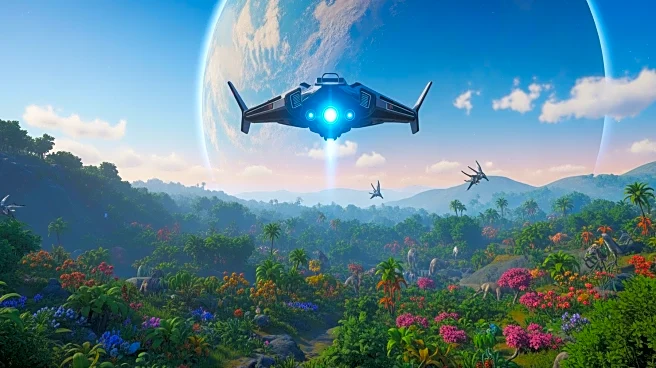What's Happening?
Frontier Developments has announced plans for a sequel to its popular game, Planet Zoo, during the game's sixth anniversary celebrations. Planet Zoo, launched in November 2019, is known for its striking
presentation and robust management features. Since its release, the game has expanded with 20 packs, introducing new animals, scenarios, and themed scenery. The announcement was made via a trailer and a statement on Frontier's website, indicating that the sequel is in development and more details will be shared next year.
Why It's Important?
The announcement of Planet Zoo 2 is significant for the gaming community and Frontier Developments, as it promises to build on the success of the original game. Planet Zoo has been praised for its creativity and depth, attracting a dedicated fan base. A sequel could enhance Frontier's position in the simulation genre, potentially increasing its market share and revenue. The development of Planet Zoo 2 also reflects the growing demand for immersive and detailed simulation games, influencing industry trends and consumer expectations.
What's Next?
Frontier Developments is expected to reveal more information about Planet Zoo 2 next year, including gameplay features and a potential release date. The company will likely focus on addressing feedback from the original game to ensure the sequel meets player expectations. As anticipation builds, Frontier may engage with the community through updates and promotional activities to maintain interest and excitement. The success of Planet Zoo 2 could impact Frontier's future projects and strategic direction.
Beyond the Headlines
The development of Planet Zoo 2 underscores the importance of community engagement and feedback in the gaming industry. It highlights the role of player-driven content and customization in shaping game development. The sequel's announcement also raises questions about innovation and sustainability in game design, as developers strive to balance creativity with commercial viability. Long-term, this could influence how games are developed and marketed, emphasizing the value of community involvement and iterative design processes.









